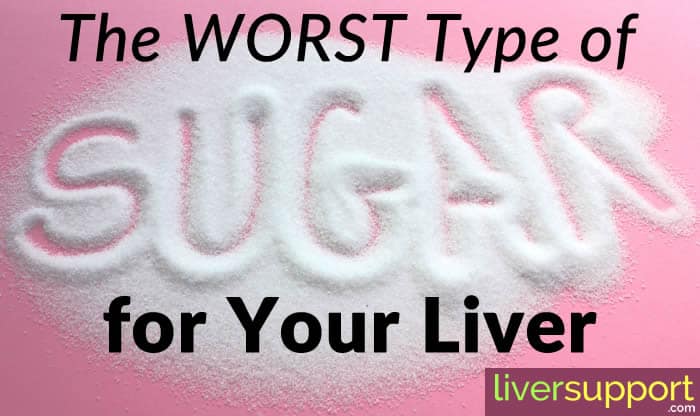
Previous
Liver Support Essentials: 5 Ways to Reduce Stress

Next
The Advantages and Disadvantages of Liver Fibrosis Evaluation Methods
The Worst Type of Sugar for Your Liver
This type of sugar can cause a host of health issues, including damage to your liver.
Most of us love a sweet treat occasionally and that may be okay in moderation, but we certainly do not want to make sugar a significant part of our diet. Sugar can take different forms, including healthy and not healthy. The body can break down natural carbohydrates, proteins and fats to produce healthy glucose, which is necessary as fuel for the brain. The problem arises when we confront the fact that Americans consume about 22 teaspoons of added sugars per day from sugary snacks and processed foods.
One of the worst types of sugar, fructose, is commonly found in sugary cakes, snacks and soft drinks. When we eat healthy carbohydrates from whole foods like fruits and vegetables, the sugar is used by the body to fuel the brain and muscles, and the body has time to process these sugars. When the body is overloaded with too many foods filled with added sugar, the liver begins storing the excess sugar within its cells as glycogen and body fat which it can access later for sustained energy.
The Negative Health Effects of Fructose
Fructose is made of sucrose (cane or beet sugar) and high-fructose corn syrup. When we eat cake and candy, and drink sweetened beverages that are sweetened with fructose, the fructose has been shown to overwhelm the body, leading to
- weight gain
- hepatic insulin resistance
- and eventually metabolic syndrome
- diabetes and
- cardiovascular disease.
Studies have also linked fructose consumption with:
- cellular dysfunction
- increased hepatic inflammation
- premature aging
- and negative changes in the brain’s reward system, driving excessive consumption.
How Fructose Can Damage Your Liver
Another problem with consuming fructose in sweet cakes, candies and beverages is that fructose acts on the body more along the lines of ethanol (grain alcohol) than as glucose. In fact, for the liver, fructose and ethanol are qualitatively equal when it comes to metabolism; meaning that, as with alcohol, the liver can process fructose only in small doses. When fructose is consumed at high volumes and/or chronically, the liver is unable to keep up and becomes inflamed. Over time, this may result in damage to the liver, starting with fatty liver. Clinical LiverSupport is physician-formulated and contains 12 liver-protective ingredients to help you reduce inflammation as well as fat accumulation in your liver.
A healthy diet calls for limiting carbohydrates and choosing healthy options such as from fruits and vegetables, along with whole grains, lean protein and healthy fats. Regular exercise and getting enough sleep will round out your health regimen, optimizing your health and wellness.
Barnes, J.N.; Joyner, M.J. (2012). Sugar highs and lows: The impact of diet on cognitive function. The Journal of Physiology & Neuroscience. Retrieved on 2/26/16 from http://www.ncbi.nlm.nih.gov/pmc/articles/PMC3448146/pdf/tjp0590-2831.pdf.
Charrez, B.; Qiao, L.; Hebbard, L. (2015). The role of fructose in metabolism and cancer. Horm. Mol. Biol. Clinical Investigation. 22(2): 79-89. Retrieved on 3/9/17 from https://www.ncbi.nlm.nih.gov/pubmed/25965509.
Gomez-Pinilla, F. (2008). Brain foods: The effects of nutrients on brain function. National Review of Neuroscience. 9(7): 568-570. Retrieved on 2/26/16 from http://www.ncbi.nlm.nih.gov/pmc/articles/PMC2805706/pdf/nihms162299.pdf.
Lustig, R.H. (2013). Fructose: it’s “alcohol without the buzz”. Adv. Nutr. 4(2): 226-35. Retrieved on 3/9/17 from https://www.ncbi.nlm.nih.gov/pmc/articles/PMC3649103/.
Maniam, J.; Morris, M. (2016). Sugar may be as damaging to the brain as extreme stress or abuse. IFLScience.com. Retrieved on 2/26/16 from http://www.iflscience.com/health-and-medicine/sugar-may-be-damaging-brain-extreme-stress-or-abuse.
NIH. (2014). Chronic high blood sugar may be detrimental to the developing brain in young children. National Institute of Health: News Releases. Retrieved on 2/26/16 from http://www.nih.gov/news-events/news-releases/chronic-high-blood-sugar-may-be-detrimental-developing-brain-young-children.






